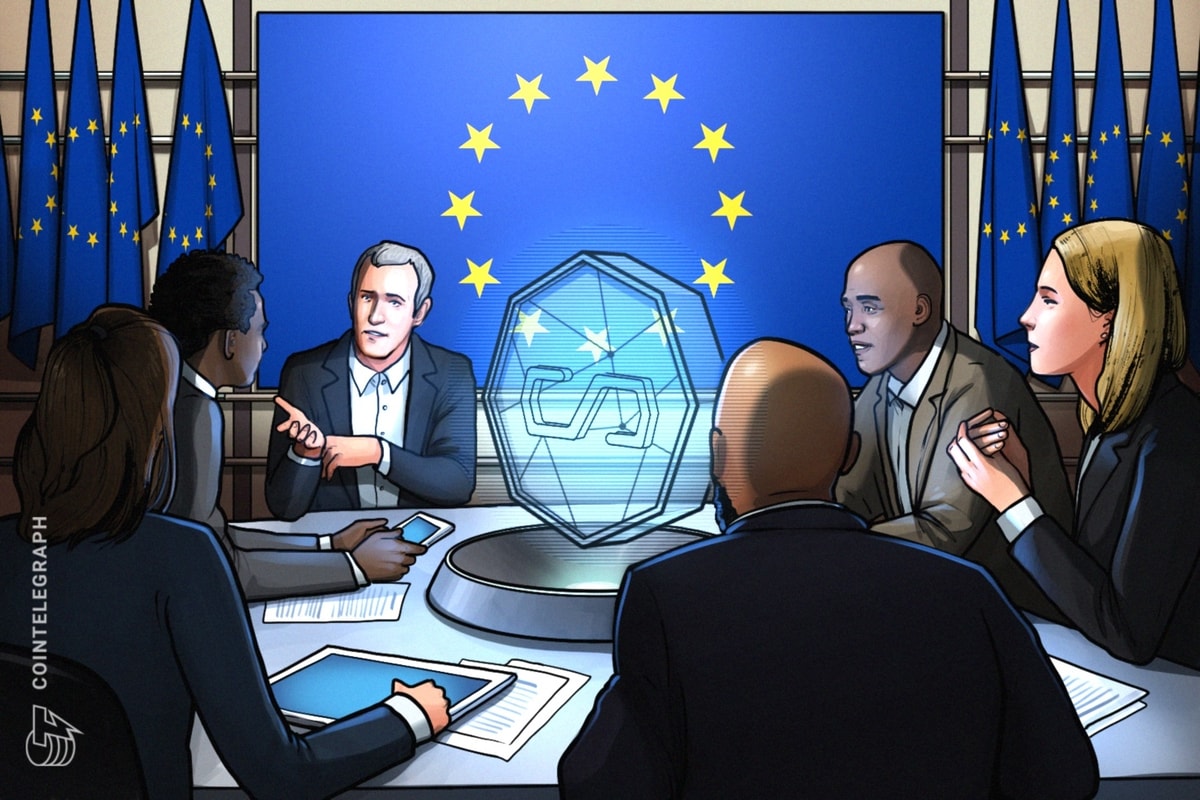The European Central Bank (ECB) renewed its push to issue a digital euro, drawing pushback from EU lawmakers over privacy protections and potential risks to commercial banks.
ECB board member Piero Cipollone told a parliamentary economic committee on Thursday that a digital euro “will ensure that all Europeans can pay at all times with a free, universally accepted digital means of payment, even in case of major disruptions.”
Some parliamentarians pushed back over concerns that the digital currency wouldn’t protect user privacy, and that offering accounts backed by the central bank would undercut the private sector.
Legislation for the central bank digital currency (CBDC) has been before the European Parliament since 2023, and has faced delays amid political concerns and the 2024 elections.
Digital euro seen as fallback in crisis
The ECB’s Cipollone said the core of the bloc’s digital payment systems comes from non-EU providers, which could hinder the “capacity to act swiftly and independently — particularly in times of crisis.”
He pitched the digital euro as a fallback in cases of cyberattacks or network outages, and noted US efforts to promote dollar-backed stablecoins.
Cipollone said a digital euro would “complement physical cash, which remains key for resilience and inclusion,” but added that digital payments are now “essential to daily life,” which the government is expected to ensure.
Lawmakers warn on privacy, risks to banks
Some lawmakers raised concerns about the privacy implications of a digital euro and the risk that EU citizens would choose to bank with the ECB over a commercial bank, as it would present a safer option.
On privacy, Cipollone stressed that the central bank “will not know anything about the payer and the payee” and that an offline solution for the digital currency “will be as good as cash in terms of preserving the privacy of the people.”
Pierre Pimpie of the right-wing Eurosceptic Patriots for Europe group said “accounts in private banks could be emptied” due to a digital euro and took issue with the ECB having control over setting a cap on user accounts, which he argued the bank could raise in a crisis.
Cipollone said the central bank’s cap would be set “on the basis of rigorous analysis” and added that if corporations and wealthy individuals “see a crisis in Europe, it will take them a second to buy a stablecoins denominated in a different currency.”
Related: ECB president calls to address risks from non-EU stablecoins
“The digital euro at that point would be the least of our problems,” he added.
ECB eyes 2026 law, rollout by 2029
Cipollone said the ECB was working under the assumption that digital euro legislation would be in place by the second quarter of 2026.
Three EU institutions must greenlight the digital euro, including the parliament, the European Commission and the European Council. Talks among them could take months.
After the law is passed, which could be as late as the middle of 2026, the ECB has to create and test the digital currency’s infrastructure, which could take up to three years, putting a potential launch around 2029 if no delays occur.
Magazine: Bitcoin is ‘funny internet money’ during a crisis: Tezos co-founder
Read the full article here


